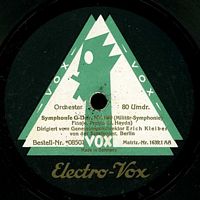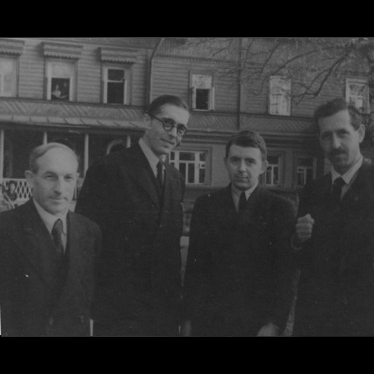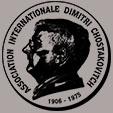Étiquette : Alexander Goldenweiser
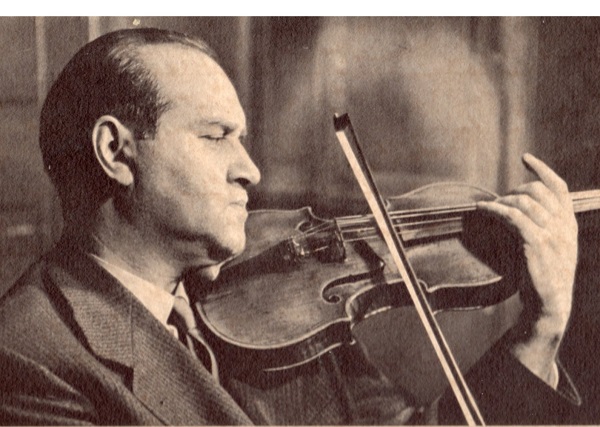
Sonate n°1 Op.12 n°1: Vladimir Yampolsky, piano (Prague 26 avril 1954) Supraphon ALPV 244
Sonate n°3 Op.12 n°3: Vladimir Yampolsky, piano (Bruxelles 19 &20 mai 1955) Angel 35331
Sonate n°4 Op.23: Alexander Goldenweiser, piano (Moscou 17 avril 1950) Akkord D-07893
Sonate n°5 Op.24: Lev Oborin, piano (Moscou 1950) Akkord D-07894
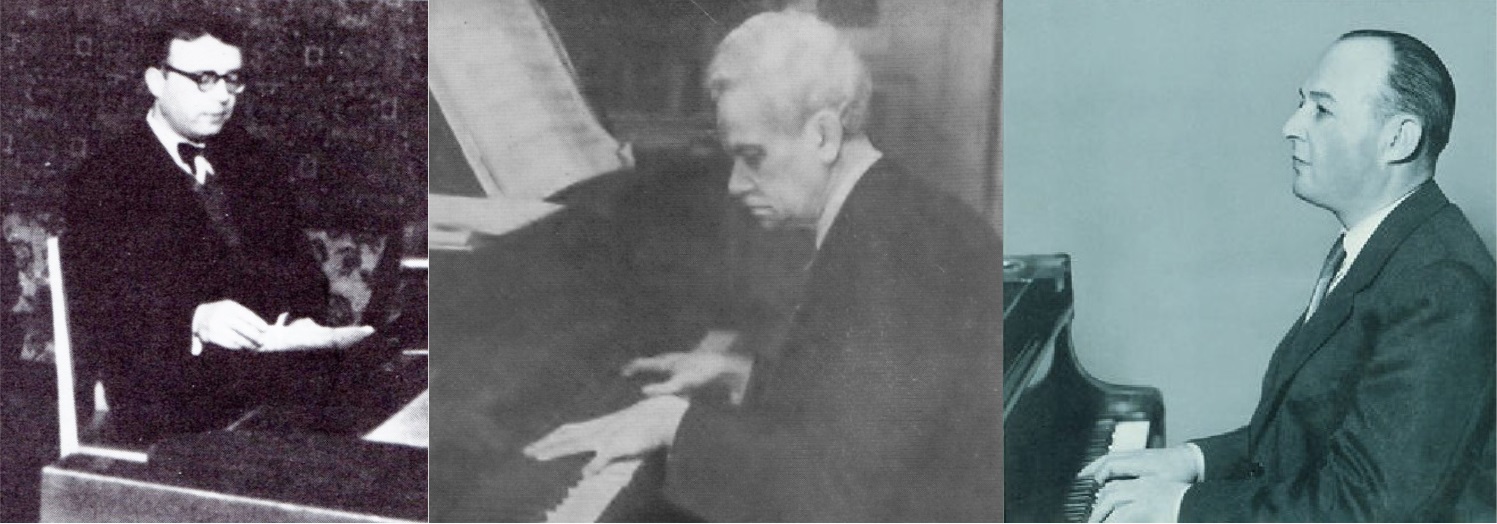
Lev Oborin, Alexander Goldenweiser & Vladimir Yampolsky
David Oïstrakh, né à Odessa (Ukraine) en 1908 et décédé à Amsterdam (Pays-Bas) en 1974, a enregistré à Paris en mai-juin 1962 avec le pianiste Lev Oborin (1907-1974) une célèbre intégrale des Sonates violon-piano de Beethoven après les avoir données en concert à la Salle Pleyel. Cet ensemble a fait l’objet de nombreuses rééditions à tel point que l’on a quasiment oublié l’existence de disques antérieurs. Aussi bien ces enregistrements de studio que les enregistrements des concerts (publiés par Doremi) montrent que ces interprétations sont en retrait par rapport aux enregistrements précédents d’Oïstrakh de huit de ces sonates réalisés entre 1949 et 1955 avec au piano Vladimir Yampolsky (1905-1965) pour les sonates n°1 et 3, Alexander Goldenweiser (1875-1961) pour la sonate n°4 et Lev Oborin (1907-1974) pour les cinq autres (n°5, 7 , 8, 9 et 10).
Si quatre d’entre elles (n°4, 5, 7 et 8) ont été enregistrées à Moscou, les quatre autres (n°1, 3, 9 et 10) l’ont été respectivement à Prague (pour Supraphon), à Bruxelles (pour EMI), à Paris (pour Le Chant du Monde) et à New-York (pour Columbia), et cette multiplicité d’éditeurs n’a pas permis une publication globale de cette quasi-intégrale.
Or, en dépit de la présence de trois pianistes différents et d’une dispersion des dates ainsi que des lieux et donc aussi des équipes d’enregistrement, on constate une grande homogénéité entre ces interprétations, ce qui signe l’indépendance d’esprit de David Oïstrakh. Nous vous les proposons en trois groupes à partir des microsillons d’origine.
____________
David Oïstrakh, born in Odessa (Ukraine) in 1908 and deceased in Amsterdam (Netherland) in 1974, has recorded in Paris in May-June 1962 with pianist Lev Oborin (1907-1974) a well-known complete version of Beethoven’s violin-piano Sonatas shortly after a series of concerts at Salle Pleyel. It has been re-issued many times so that the very existence of earlier recordings has been almost forgotten. The studio recordings as well as the concert performances (released by Doremi) show that these are much less convincing that the earlier Oïstrakh recordings of eight of the sonatas made between 1949 and 1955 with pianists Vladimir Yampolsky (1905-1965) for sonatas n°1 and 3, Alexander Goldenweiser (1875-1961) for sonata n°4 and Lev Oborin (1907-1974) for the other five (n°5, 7 , 8, 9 and 10).
If four of them (n°4, 5, 7 and 8) were recorded in Moscow, the other four (n°1, 3, 9 and 10) were made in Prag (for Supraphon), in Brussels (for EMI), in Paris (for Le Chant du Monde) and in New-York (for Columbia), and this multiplicity of editors did not permit an overall re-issue of this fast complete series.
In spite of three different pianists and of a dispersion of the dates as well as of the recording countries and for that matter also of the recording teams, there is a great homogeneity in the performances which accounts for David Oïstrakh’s independent mind. We propose them in three groups from the original LPs.
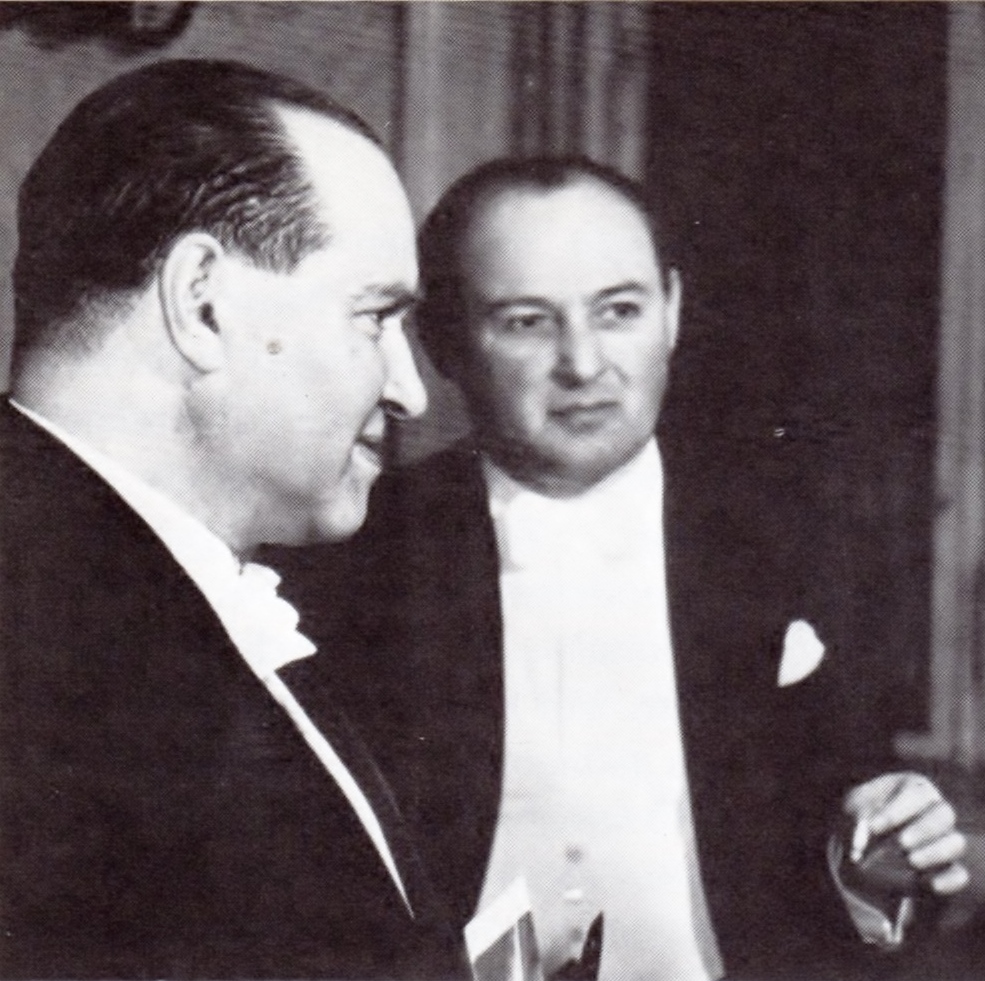
David Oïstrakh & Vladimir Yampolsky
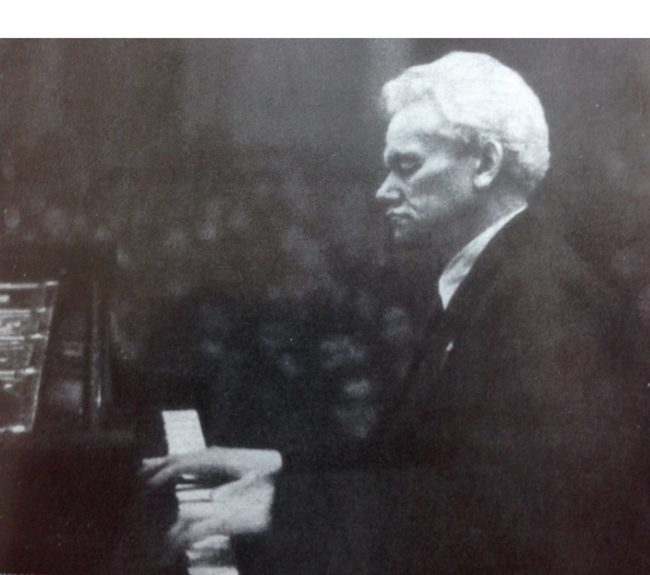
Enregistré le 20 Octobre 1950 (K.478) & le 9 Novembre 1951 (K.493)
Alexander Goldenweiser (1875-1961), grand pianiste et grand pédagogue n’a peut-être pas de réputation particulière en ce qui concerne l’interprétation des œuvres de Mozart, mais dans ces deux Quatuors avec piano, son sens du style et de l’articulation font merveille, et sont même incroyablement modernes quand on songe qu’il est né en 1875. Pour le Quatuor n°1 K.478, il joue en collaboration avec des membres du Quatuor Komitas, et pour le Quatuor n°2 K.493 avec ceux du Quatuor Philharmonique de Moscou, c’est-à-dire la dénomination initiale du Quatuor Borodine (avec Rudolf Barshaï à l’alto).
_______________
Quatuor avec piano n°1 K.478 Membres du Quatuor Komitas: Avet Gabrielyan, violon, Henrik Talalyan, alto et Sergei Aslamazyan, violoncelle
Le Quatuor Komitas a été fondé en 1924 par quatre étudiants d’origine arménienne du Conservatoire de Moscou: Avet Gabrielyan (1899-1983) et Levon Ogandjanyan, violons I et II, Mikhaïl Terian (1905-1987), alto et Sergei Aslamazyan (1897-1978), violoncelle. En 1947, Levon Ogandjanyan est remplacé par Rafael Davidyan (1923-1997) qui restera jusqu’en 1970, et Mikhaïl Terian est remplacé jusqu’en 1972 par Henrik Talalyan (1922-1972). Avet Gabrielyan restera violon I jusqu’en 1976 et Sergei Aslamazyan en tant que violoncelliste jusqu’en 1968.
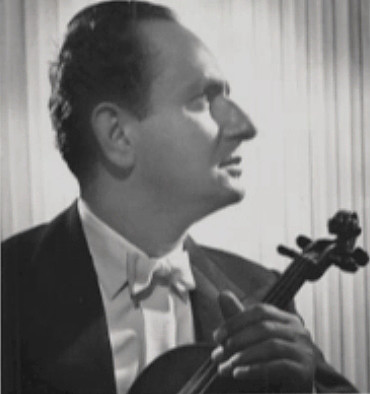
Avet Gabrielyan
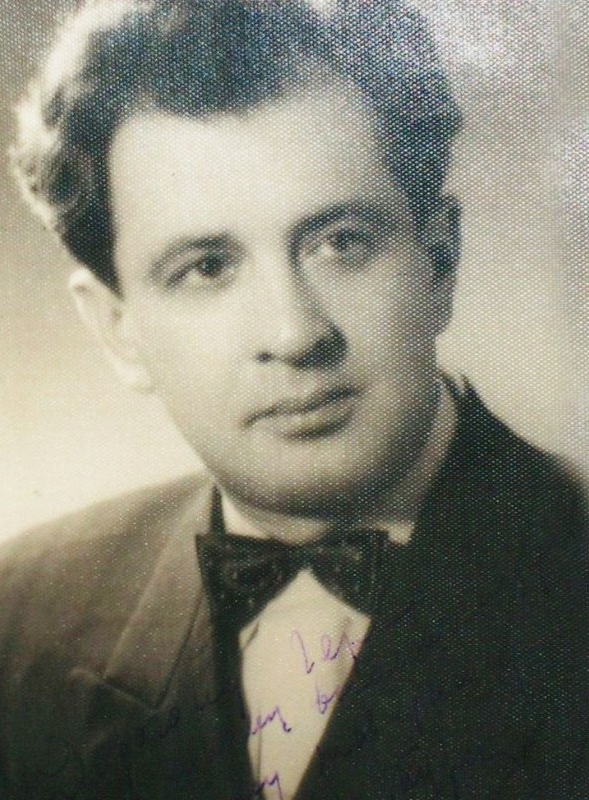
Henrik Talalyan
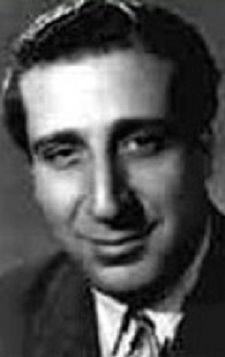
Sergei Aslamazyan
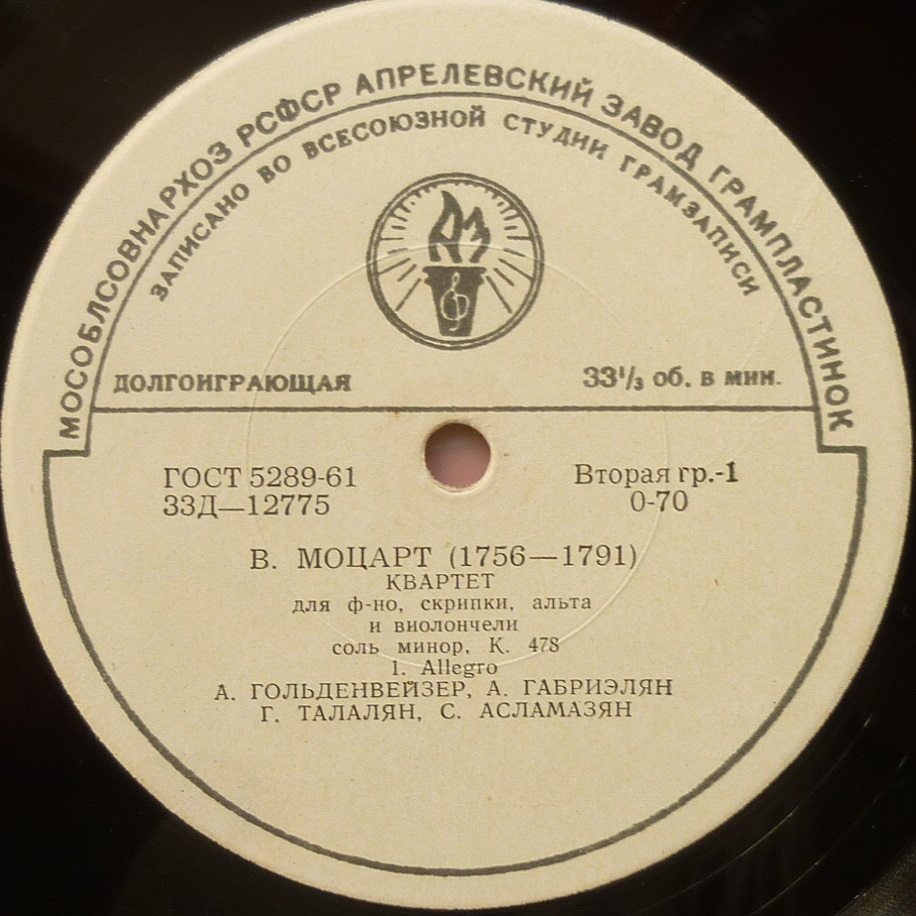
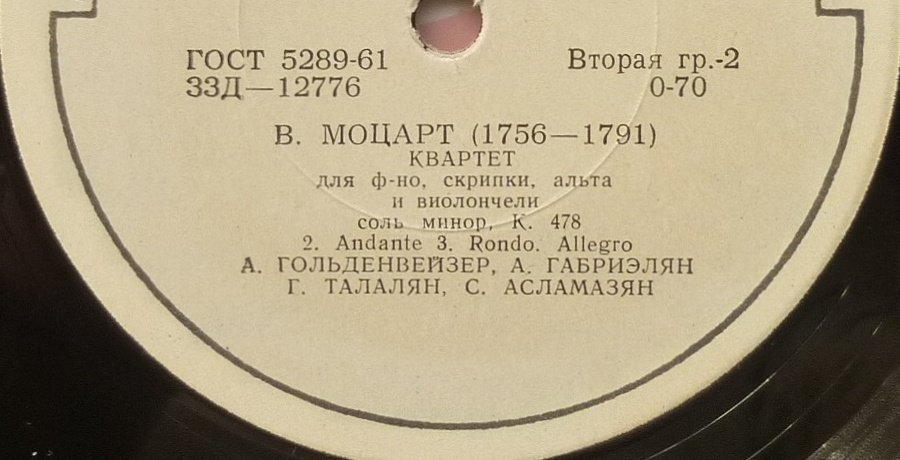
_______________
Quatuor avec piano n°2 K.493 Membres du Quatuor Philharmonique de Moscou: Rostislav Dubinsky, violon, Rudolf Barshaï, alto et Valentin Berlinsky, violoncelle
Le Quatuor Philharmonique de Moscou a été fondé en 1945 par des élèves de la classe de Musique de Chambre de Mikhaïl Terian (co-fondateur du Quatuor Komitas) au Conservatoire de Moscou: Rostislav Dubinsky (1923-1997) et Vladimir Rabei, violons I et II, Yuri Nikolaïevsky (1925-2003), alto et Mstislav Rostropovitch, violoncelle pour peu de temps et vite remplacé par Valentin Berlinsky (1925-2008). Yuri Nikolaïevsky est remplacé en 1946 par Rudolf Barshaï (1924-2010). Vladimir Rabei est remplacé en 1947 par la première épouse de Rudolf Barshaï, Nina Barshaï, jusqu’à ce que Yaroslav Alexandrov (1927) lui succède en 1952. En 1953, Rudolf Barshaï quitte le Quatuor pour rejoindre le Quatuor Tchaïkovsky de Yulian Sitkovetsky (1925-1958) et est remplacé par Dmitry Shebalin. L’ensemble (Dubinsky, Alexandrov, Shebalin, Berlinsky), maintenant dénommé Quatuor Borodine, restera stable jusqu’en 1974, avec le départ de Yaroslav Alexandrov, remplacé par Andrei Abramenkov, puis en 1975, de Rostislav Dubinsky, remplacé par Mikhail Kopelman.
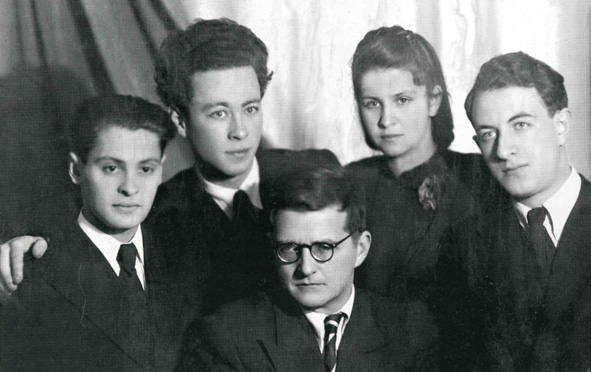
De gauche à droite: Rostislav Dubinsky, Valentin Berlinsky, Nina Barshaï et Rudolf Barshaï entourant Dimitri Chostakovitch
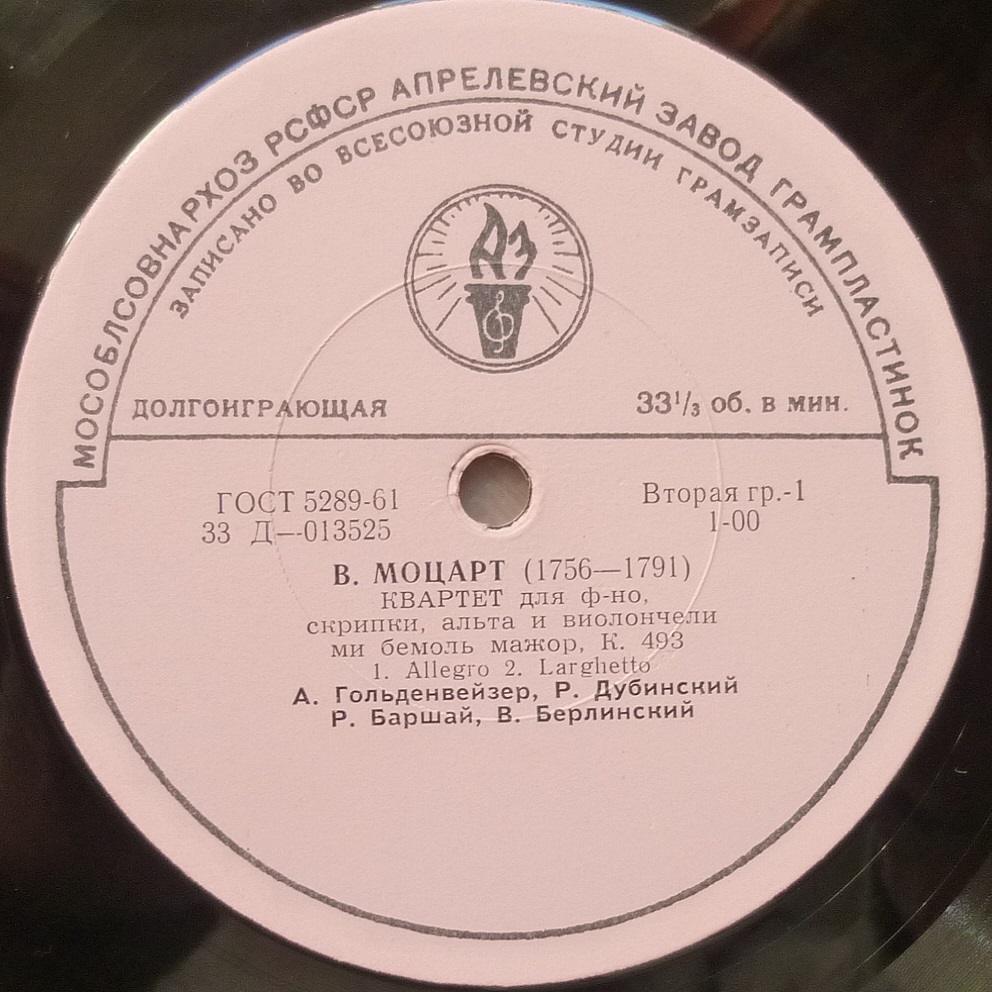
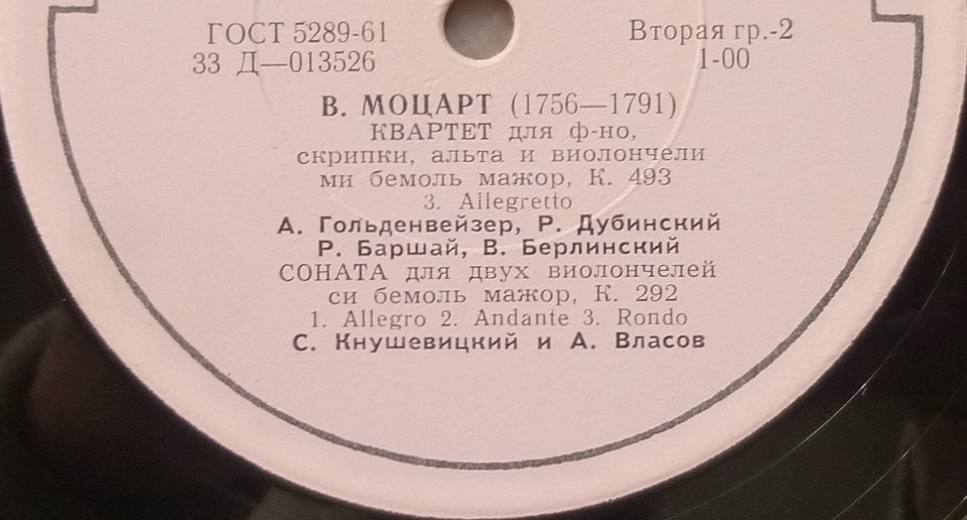
_______________
Recorded October, 20 1950 (K.478) & November, 9 1951 (K.493)
Alexander Goldenweiser (1875-1961), great pianist and pedagogue may not be especially famous for his performances of Mozart works, but in both of these Piano Quartets, his sense of style and of articulation are splendid, and are even incredibly modern when one thinks he was born in 1875. For Quartet n°1 K.478, he plays with Members of the Komitas Quartet, and for Quartet n°2 K.493 with those of the Moscow Philharmonic Quartet, namely the initial name of the Borodin Quartet (with Rudolf Barshaï playing the viola).
_______________
Piano Quartet n°1 K.478 with Members of the Komitas Quartet: Avet Gabrielyan, violin, Henrik Talalyan, viola and Sergei Aslamazyan, cello
The Komitas Quartet was founded in 1924 by four students of Armenian origin of the Moscow Conservatory: Avet Gabrielyan (1899-1983) and Levon Ogandjanyan, violins I and II, Mikhaïl Terian (1905-1987), viola and Sergei Aslamazyan (1897-1978), cello. In 1947, Levon Ogandjanyan is replaced by Rafael Davidyan (1923-1997) who remained until 1970, and Mikhaïl Terian is replaced until 1972 by Henrik Talalyan (1922-1972). Avet Gabrielyan remains violon I until 1976 and Sergei Aslamazyan as cellist until 1968.
_______________
Piano Quartet n°2 K.493 with Members of the Moscow Philharmonic Quartet: Rostislav Dubinsky, violin, Rudolf Barshaï, viola and Valentin Berlinsky, cello
The Moscow Philharmonic Quartet was founded in 1945 by pupils of the Mikhaïl Terian’s Chamber Music Class (Terian being one of the co-founders of the Komitas Quartet) at the Moscow Conservatory: Rostislav Dubinsky (1923-1997) and Vladimir Rabei, violins I and II, Yuri Nikolaïevsky (1925-2003), viola and Mstislav Rostropovitch, cellist for a short period and quickly replaced by Valentin Berlinsky (1925-2008). Yuri Nikolaïevsky is replaced in 1946 by Rudolf Barshaï (1924-2010). Vladimir Rabei is replaced in 1947 by Rudolf Barshaï’s first wife Nina Barshaï until Yaroslav Alexandrov (1927) comes in (1952). In 1953, Rudolf Barshaï leaves the Quartet to join the Tchaïkovsky Quartet led by Yulian Sitkovetsky (1925-1958) and is replaced by Dmitry Shebalin (1930-2013). The ensemble (Dubinsky, Alexandrov, Shebalin, Berlinsky), now named Borodin Quartet, remains the same until 1974, with the departure of Yaroslav Alexandrov, replaced by Andrei Abramenkov and in 1975, of Rostislav Dubinsky, replaced by Mikhail Kopelman.
Les liens de téléchargement sont dans le premier commentaire. The download links are in the first comment.

